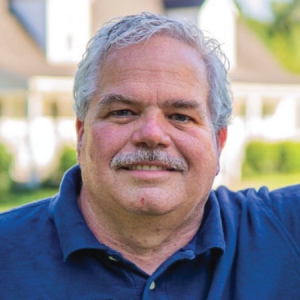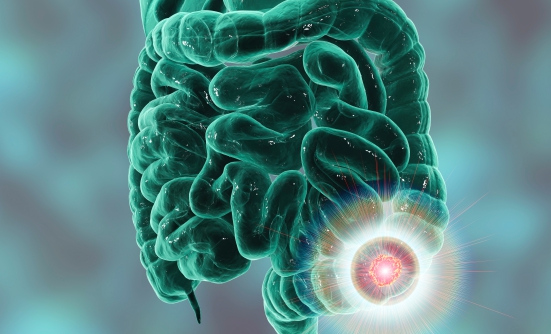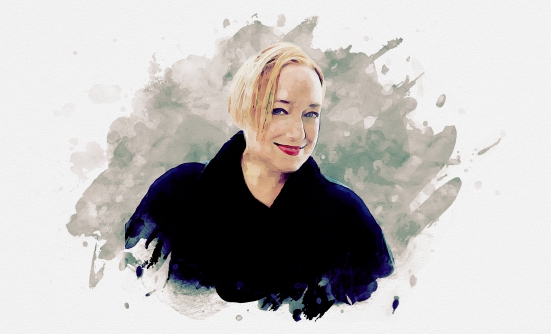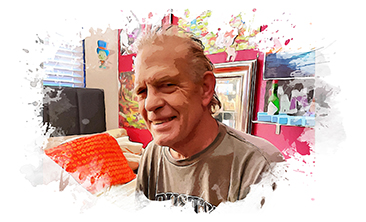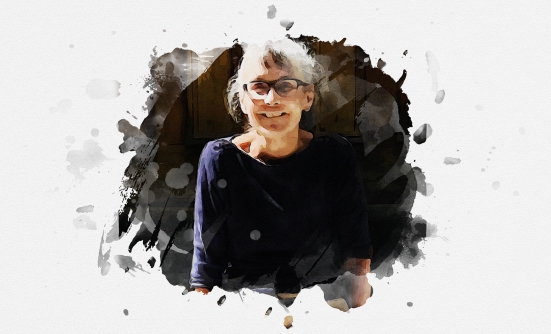In the summer of 2017, I started to have abdominal pains and fatigue, which I attributed to the stress of dealing with my dad’s death a few months earlier. I had small amounts of blood in my stool, but I ignored it all.
Ignoring Symptoms
By October, I went to a scheduled doctor’s appointment for a routine physical exam. I told my doctor about those symptoms. He said that because I had just turned 50, I should have a colonoscopy. I scheduled it for November.
Two days before my procedure, my mom died of a heart attack. Once again, I ignored my symptoms and canceled the colonoscopy, to help with my mom’s estate and last wishes. I continued to ignore the pain, figuring that all that emotional turmoil was causing the fatigue and stress on my body.
I was deeply saddened that I was not going to have my mom over for the holidays. We had made holiday plans right before she died, and it was heart wrenching. I was emotionally and physically weak. Little did I know, it was the cancer inside me that was causing the pain and discomfort.
World Upside Down
Finally, in the spring of 2018, at the urging of my wife, I scheduled the colonoscopy. My wife came with me to the clinic for my colonoscopy. As the procedure began, I drifted off to sleep from the anesthesia, but then I woke up and looked at the doctor’s monitor; I saw a meatball-size tumor hanging off the side of my colon. I knew I was looking at my cancer. My doctor said gently that they had removed 2 small polyps from the colon, and everything was now clear. He said “we have got you,” and hoped they caught the cancer early.
When I got back to the waiting room, I could not look my wife in the eyes. The guilt of delaying the colonoscopy was setting in on me. I knew I had just turned our world upside down. She just grabbed my hand as we listened to the doctor. I am glad she was there, because I could not comprehend what he was saying. I felt sick and I wanted to vomit. The doctor was certain that it was stage III, which means the cancer did not spread.
We were going to need help dealing with the emotional turmoil over the next few months. Cancer crushes you physically, and takes a devastating toll on you emotionally. Healing these 2 aspects of cancer is believed to result in better outcomes for the patient. I know it did for me.
My wife, who is a registered nurse, works at the same hospital where my cancer center was. She had figured out the plan of action along with my hospital’s care team. I describe it as “showing up at my wedding”: I had better show up on time and be ready to go.
The plan was to kill the cancer. My wife was not going to allow anything less than that. I was going to have surgery to remove the tumor from my colon and the 3 infected lymph nodes. After surgery, the plan was to use “clean up” chemotherapy with oxaliplatin infusions every 3 weeks, plus Xeloda pills between each chemo session.
Overwhelmed
At first I was doing fine, until the emotional side effects hit me. I became a very sad and broken man. I could handle the physical side effects and even the nausea from the medicine. It was the loneliness and self-isolation that pained me so much during treatment. I became a sad person, fearful that the cancer had spread. It was all I could think about. The stress was overwhelming at times.
At about my second treatment, my oncologist noticed how sad and stressed I was and reassured me, saying, “I got this.” He also wanted me to see a therapist. I thought I was fine, but my wife thought differently.
The pressure of being my caregiver, a full-time nurse, and a mom was getting to be too much for her. She could not be my only sounding board; it was putting too much pressure on her. I agreed to listen to my caregiver and seek help. As patients we are not the only ones who are suffering from this disease. I wasn’t going to let cancer steal my marriage and hurt the ones I love.
Support from Others
I went to a few sessions with my therapist and attended a local support group she was leading. It was helpful to talk to other patients going through the same thing. I also started searching for online groups. I began to feel better as I found other men in similar situations, with a similar cancer.
A month after I finished chemotherapy, I had my first set of scans and received the results that every patient with colon cancer hopes to hear: NED, or “no evidence of disease.” This concept is like a gift you don’t know how to unwrap. You are told that the cancer is gone, but it will be monitored for the next 4 years, to see if it comes back.
I wasn’t sure what to do with that myself. Our family went out to celebrate that night, but I was not sure what I would do next. How could I feel good, when so many I knew were not even close to the same status?
My therapist encouraged me to continue to attend the support group. She said that my status of “no evidence of disease” would bring hope to the group members. She said that I may find that I, too, need support from the group as a survivor. She was right.
As the months followed, I found myself grieving my cancer. At least I was doing something about it during chemotherapy, and now I felt like I was waiting for it to come back.
The anxiety of a cancer reccurrence was starting to settle in my mind. It would be a few months before I realized that giving back to others in the cancer community is the greatest way to combat this type of anxiety.
Shining Through Survivorship
Charles Griffin Jr., a fellow patient with colon cancer and member of Colontown, had encouraged me early on in my diagnosis to find ways to share my cancer story and to give back. He told me that men typically don’t want to talk about their cancer story, or they are ashamed they have cancer. Charles became a huge part of my cancer story.
After he died in 2019, I was reminded of his words in a speech he had given to a group of cancer survivors, which he called “We Are All Glowsticks.” Charles told us that being a patient with cancer is like a glowstick—you have to be broken to shine. I had been broken, and now I had to shine. I will never forget those words, and I was on a mission to discover how to do that as a survivor.
I looked for ways to encourage other patients at my local cancer center. I participated in local fundraisers and started to share my story in various colon cancer groups. By the end of 2019, I met Trevor Maxwell, a Colontown member, who is living with stage IV (metastatic) colon cancer. He had been building a webpage and writing a book about the physical and mental struggles of men going through cancer. He calls it “Man Up to Cancer.” He wanted men to have an open heart and a warrior spirit as they battle cancer, and to offer support for men in the cancer community.
This reminded me of what Charles said months earlier—“Be a glowstick and shine.” Trevor asked if I could help him build a Facebook support group called “The Howling Place” as a component of the webpage, based on the idea of a wolfpack supporting each other. Trevor asked me to be the lead administrator of the group. On January 1, 2020, I invited more than 200 men to join our group. As of today, we have almost 1,300 men in “The Wolfpack,” as the men of “The Howling Place” wish to be known.
Wolfpack
I continue to fight the anxiety that comes from the worry of a cancer recurrence, but now I have a “wolfpack” to run with. I have decided that if cancer is done with me, I am not done with cancer. My journey as a cancer advocate was just beginning.
In the fall of 2019, Jayne Vinson had posted in Colontown about her grandson, Jayden Oakes, who had been recently diagnosed with stage III colorectal cancer. He was only 11 at the time. They were traveling to Chapel Hill, North Carolina, for his surgery, so I reached out to let her know I lived near the hospital, and that I could be of service to them. They spent 9 weeks here in North Carolina after his surgery. Only 1 child in a million has colorectal cancer.
In time, I learned about other children being diagnosed with colorectal cancer, and most have stage IV, or metastatic, cancer. At this point, Jayden Oakes’ cancer had progressed to stage IV as well.
Colontown Junior
I had just completed “The Empowered Patient Leadership” program through Colontown University. When asked at graduation what group I would like to start in Colontown, I said a pediatric colorectal cancer group. With the help of the leaders of Colontown, we began to create Colontown Junior. Our hope is to give these families and pediatric patients with colorectal cancer the emotional support they desperately need. It will also bring much needed awareness to the colon cancer community.
The Empowered Patient Leadership program and Man Up to Cancer helped me find a purpose and passion to my survivorship. I will forever be grateful to Colontown and many of its members, and The Howling Place Group at Man Up to Cancer.






